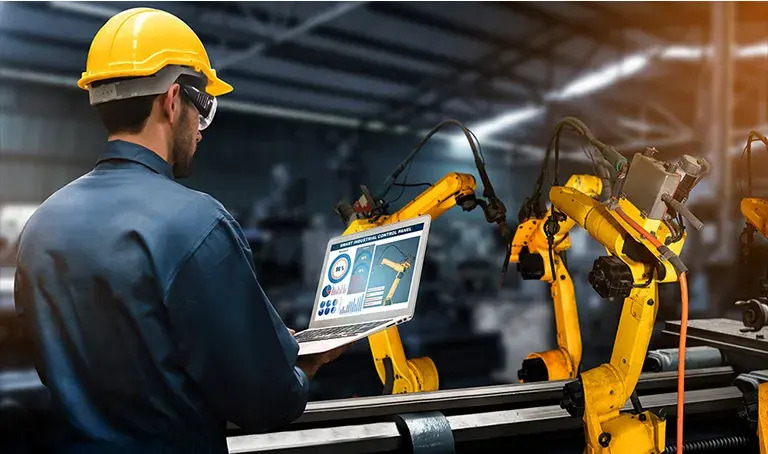If data is oil, manufacturing is the brightest lamp powered from it. Manufacturing is expected to generate 1812 Petabytes (PB) of data every year, a lot more than BFSI, healthcare & many other industries, according to Deloitte. Industrial Analytics today are helping optimize every facet of manufacturing by enabling proactive decision making & automation across organizations through the access of the right data to the right people on time.
What does Industrial Analytics exactly do?
Industrial Analytics Definition:
Industrial Analytics collects, analyses, and uses data generated in industrial operations through machines, processes, and people.
Traditionally Manufacturers have always been using data to improve their efficiency & machine health for years. But what has changed now with technologies like IoT is how the data is captured. In the past, data collection was done manually, with plant operators recording data or feeding it in a machine. But these approaches are flawed- they are time-consuming and prone to human errors and biases. This data is still grassroots and not actionable for decision-making, particularly at a senior level. With digital transformation, tons of strategically placed sensors capture every critical machine data, recorded and analyzed in real-time. The level of insights that emerge is actionable for every level.
Here is how industrial analytics is transforming various use cases in manufacturing, improving the efficiency and productivity of machines, processes & people:
Improving Manufacturing Supply Chain
In a hyperconnected world, manufacturing processes and supply chains are getting increasingly extensive and complicated. Industrial Analytics enable manufacturers to hone in on every stage of the manufacturing process and study supply chains in minute detail, accounting for individual activities and tasks. Based on machine health, inventory status, forecasting of orders, preparation, and choice of suppliers can be made in advance.
In the current scenario of a dynamically changing environment, a resilient supply chain can make or break your enterprise.
IReduce Downtime
Manufacturers can extend the life of critical assets by using data to predict when they will fail. Predictive maintenance systems today collect past data to produce insights that aren’t visible using traditional methods. For example, companies may utilize industrial analytics to identify the conditions that may cause a machine to malfunction and monitor input parameters to act before the equipment breaks or be prepared to replace it when it does, reducing downtime. Factors like Misaligned shafts, lubricant oil contamination and excessive vibrations can result in unplanned downtime if not controlled in time. Technologies like Infinite Uptime’s IDAP can allow plant managers to track these in real-time and predict anomalies with a prescribed solution, effectively minimizing planned and unplanned downtime.
Since machine downtime can cause a loss of around $260,000 an hour per hour for a manufacturing company, this is one of the most critical use cases for industrial analytics.
To Know more about Impact of Industrial Analytics: https://www.infinite-uptime.com/impact-of-industrial-analytics-in-fostering-manufacturing-transformation/





Comments